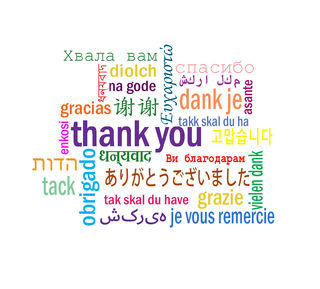Play
Being Weird Is Good Teaching
To learn a language you have to risk being ridiculous.
Posted May 1, 2018

I was recently asked to give a plenary address at the annual Applied Linguistic Winter Conference of NYSTESOL held at Teachers College Columbia University in New York City. It was an honor and took me back to my roots as a psycholinguist in the early years of my career. The theme of the conference was “Culturally Relevant Pedagogy.” As someone with a passionate interest in matters linguistic and an ethical and political concern with language and culture, I was eager to speak to this gathering of about 200 English as a Second Language educators and scholars. I of course got to thinking about what culturally relevant pedagogy means, both to the committed and talented conference participants and to me.
My view is one that takes into account the overall culture in which educators practice culturally relevant pedagogy. What I mean by that is whatever particular pedagogy is being used, it needs to take into account the way all of us are socialized to understand what language is, what learning is, and what culture is. It needs to be relevant to the ways we are socialized to be and to feel and to think in this world.
The current culture here in the US, and increasingly globally, is individuated, competitive and knowledge-oriented—philosophically, psychologically, economically and politically. While we might be polarized to an extreme today, we’ve been socialized for centuries to see and understand and relate dualistically—with pressure to put most everything into categories and to divide the world into either-or—either cause or effect, mind or body, good or evil, cognitive or emotional, private or social, nature or nurture, thought or action, work or play. In such a climate, what is culturally relevant pedagogy? In such an acquisitional, product-driven world, can we build environments to support students of any age and sub-culture to continuously develop themselves, their families, their communities—and their cultures? What does it take to learn developmentally and continuously become learners?
I think we have to be weird to help people learn and grow, and that includes learning a language and growing as a speaker, reader, write and meaning maker in another language. We ourselves have to be—and help students to be—weird in the sense of being other than who we and they are. We have to organize environments for them to play at being other—to play with their identities, with each other and with language. We have to organize environments for them to perform, which is a kind of play—to take who they are and create with that someone other than who they are. You cannot learn another language, I firmly believe, unless you are being ridiculous a large part of the time.
Here’s a story of one time I was weird. I was about to leave for Moscow to work with an innovative university there. This was my fourth or fifth trip to Russia and I was frustrated thinking about how bad I felt that I didn’t speak Russian in spite of trying to learn it off and on for years. Even though I was close with my colleagues there I still felt our relationships were limited. I shared this with a colleague who told me I couldn’t speak Russian as who I was, because I didn’t know the language. I’d have to perform as a Russian speaker if I wanted to change the dynamic. I asked him if he had any performance direction for me and he said, “You should perform as a teacher of Russian.” He saw me looking at him like he’d lost his mind. So he continued, “Gather a group of the Russians translators and ask them to let you teach them Russian. All you need to create this performance, to create the lesson, is one English sentence—How do you say ‘how do you say’ in Russian?” (Answer: kak ty skazhesh)
It worked. Armed with that sentence, I could perform as a teacher and ask them things like, “How do you say ‘Today is Tuesday?; How do you say “Which is the noun in this sentence?” and so on and so on. I became a teacher of Russian and my supportive and enthusiastic students and I created a 45-minute performance of a Russian language class—with me who didn’t know Russian performing as teacher and they, who were native Russian speakers, performing as beginning Russian learners. I and they spoke only Russian (except for the English words I asked them how to say in Russian) and together we learned the alphabet and how nouns and verbs go together, we read a children’s book, and created a poem. We had created an environment—a stage, if you will—that freed me up to speak Russian by performing who I was not. They told me that performing as beginning students, they also felt loosened from their professional roles and noticed some things about the Russian language that they take for granted.
Play and performance are powerful tools of learning and development, not only in early childhood but throughout the life span. That’s because when we play and perform we can loosen the rules and roles that keep us doing what we know how to do. We have permission to take risks and do something new without believing that we have to know how it’ll turn out before we do it. We can grow beyond our regular feelings, attitudes, learning and knowledge, and creating possibilities for different ways of relating, feeling, thinking and learning.
In a culture that every day, in subtle and not so subtle ways, reinforces the biases and hierarchies that maintain inequity and injustice, that ignores process in the name of product and outcome, that glorifies individualism, and that frowns upon play and constantly tells us who we are instead of encouraging us to continuously create new performances of ourselves—a culturally relevant pedagogy is one that is playful and performatory. In this hard historical moment, this non-developmental culture of ours—I don’t think we can create much of anything positive or humane, never mind a fair and peaceful world, if we persist in being who we are in so-called real life. Let’s develop. Let’s give becoming other than who we are a chance.


